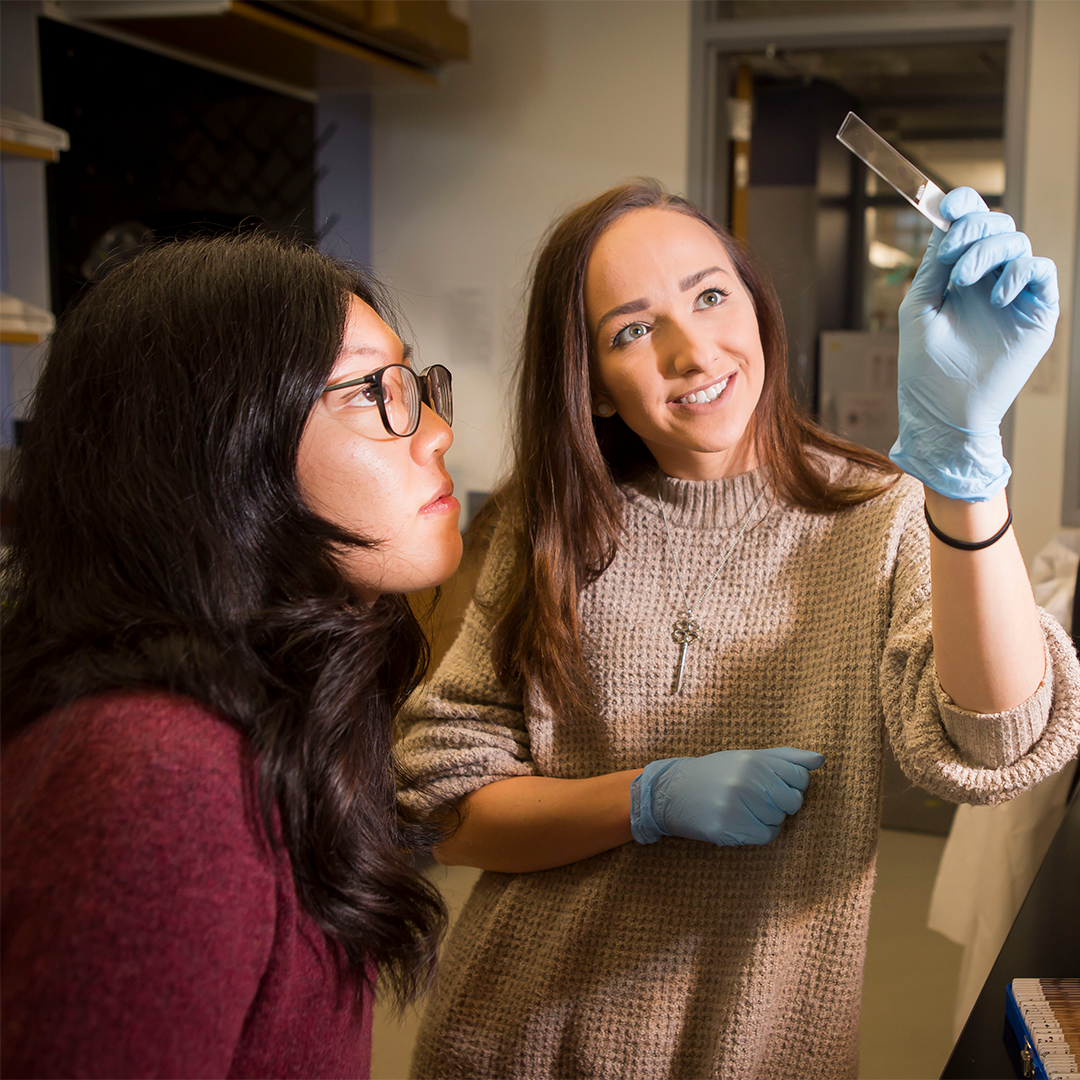Our faculty take great pride in the program and the courses they develop. They spend a lot of time making sure the course material is relevant, so they're not working off something that is 3-5 years old. They're working off problems and concerns that are happening now.
— Dr. Lori Ferranti, Director of Graduate Studies, Engineering Management (online
Leadership
-
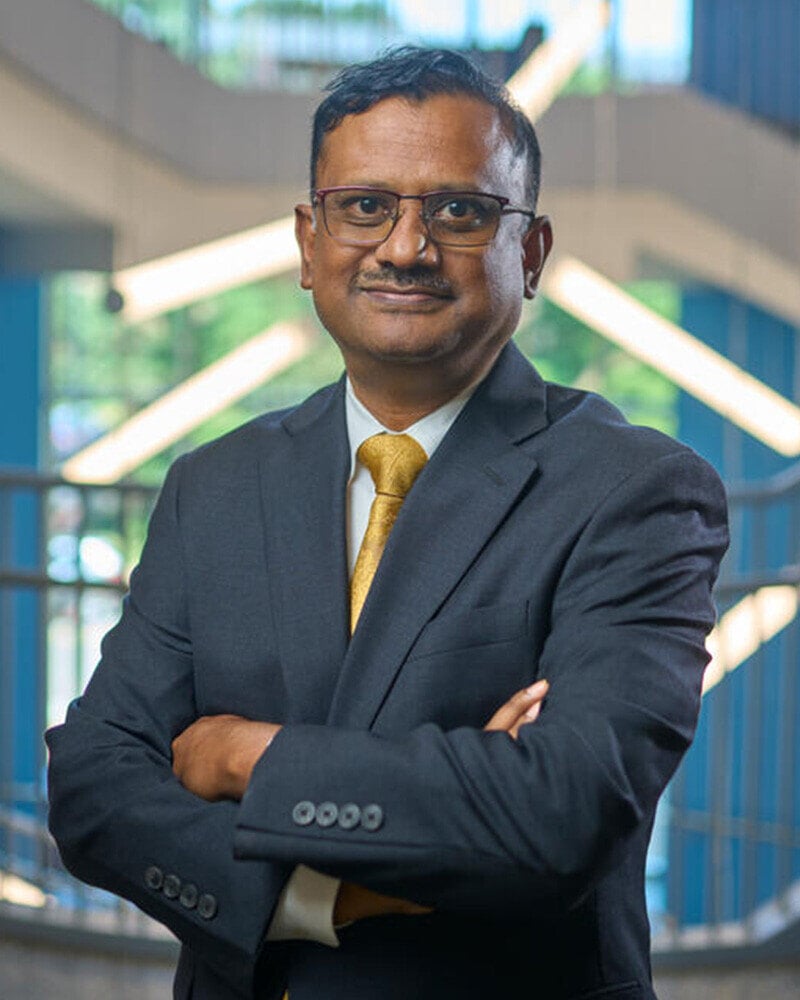
Krishnendu (Krish) Roy
Bruce and Bridgitt Evans Dean of Engineering, University Distinguished Professor
-
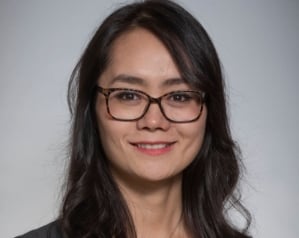
Joanne Rong Wang
Assistant Dean for Professional and External Education Programs, Associate Professor of the Practice of Engineering Management
-
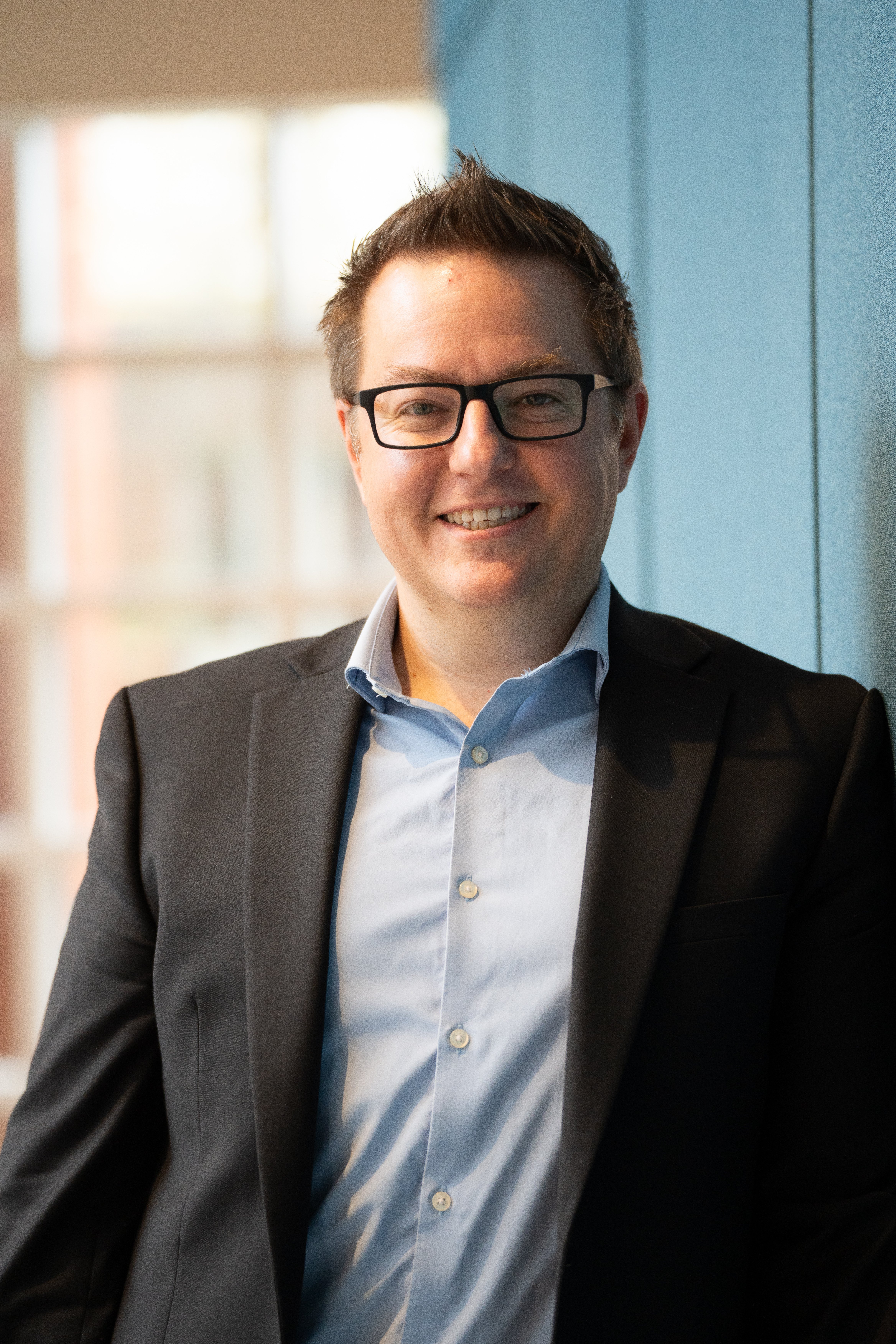
Jules White
Associate Dean for Strategic Learning Programs, Associate Professor of Computer Science
-
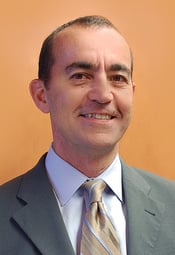
John Yiorgos Kostoulas
Director of the Division of General Engineering, Professor of the Practice of Engineering Management
-
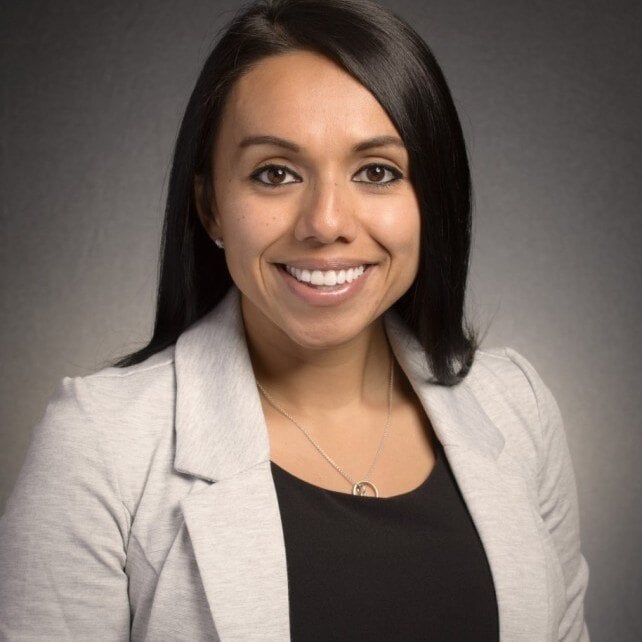
Angela Dunn
Assistant Dean, Online and Continuing Education, School of Engineering at Vanderbilt University
-
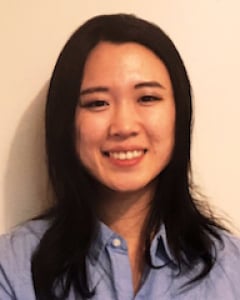
Peng "Dana" Zhang
Director of Graduate Studies, M.S. in computer science online, Assistant Professor of the Practice of Computer Science
-

Jules White
Associate Dean for Strategic Learning Programs, Associate Professor of Computer Science
-
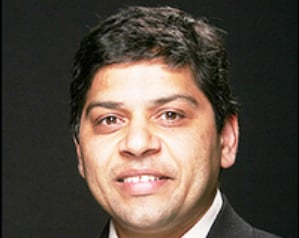
Aniruddha Gokhale
Professor of Computer Science, Professor of Computer Engineering
-
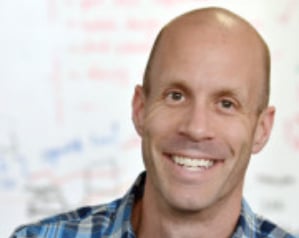
Graham Hemingway
Assistant Professor of the Practice of Computer Science
-
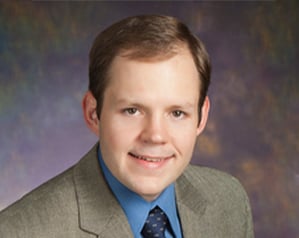
Taylor Johnson
Associate Professor of Computer Science, A. James and Alice B. Clark Foundation Faculty Fellow in Engineering, Associate Professor of Electrical and Computer Engineering
-
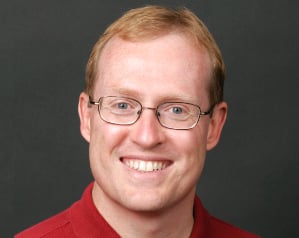
Douglas Schmidt
Associate Provost for Research Development and Technologies, Cornelius Vanderbilt Professor of Engineering, Professor of Computer Science, Professor of Electrical and Computer Engineering, Co-Director of the Data Science Institute
-

Janos Sztipanovits
E. Bronson Ingram Distinguished Professor of Engineering, Executive Council Institute for Software Integrated Systems, Professor of Computer Science, Professor of Electrical and Computer Engineering
-
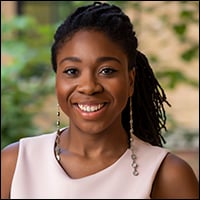
Charreau Bell
Assistant Professor of the Practice of Computer Science
-
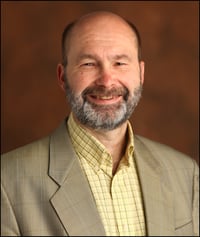
Douglas Fisher
Associate Professor of Computer Science, Associate Professor of Computer Engineering
-
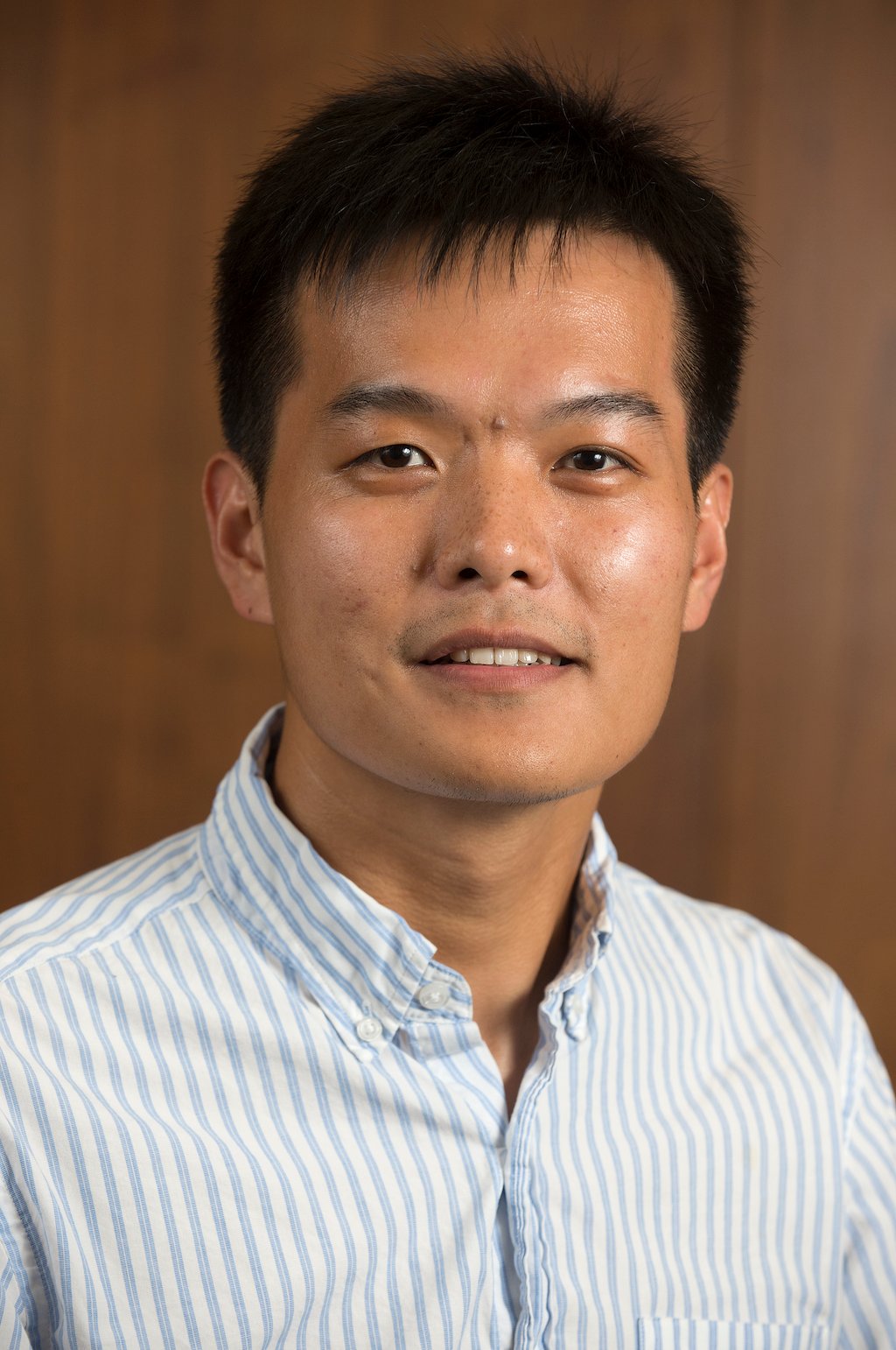
Yu Sun
Adjunct Associate Professor of Computer Science
-
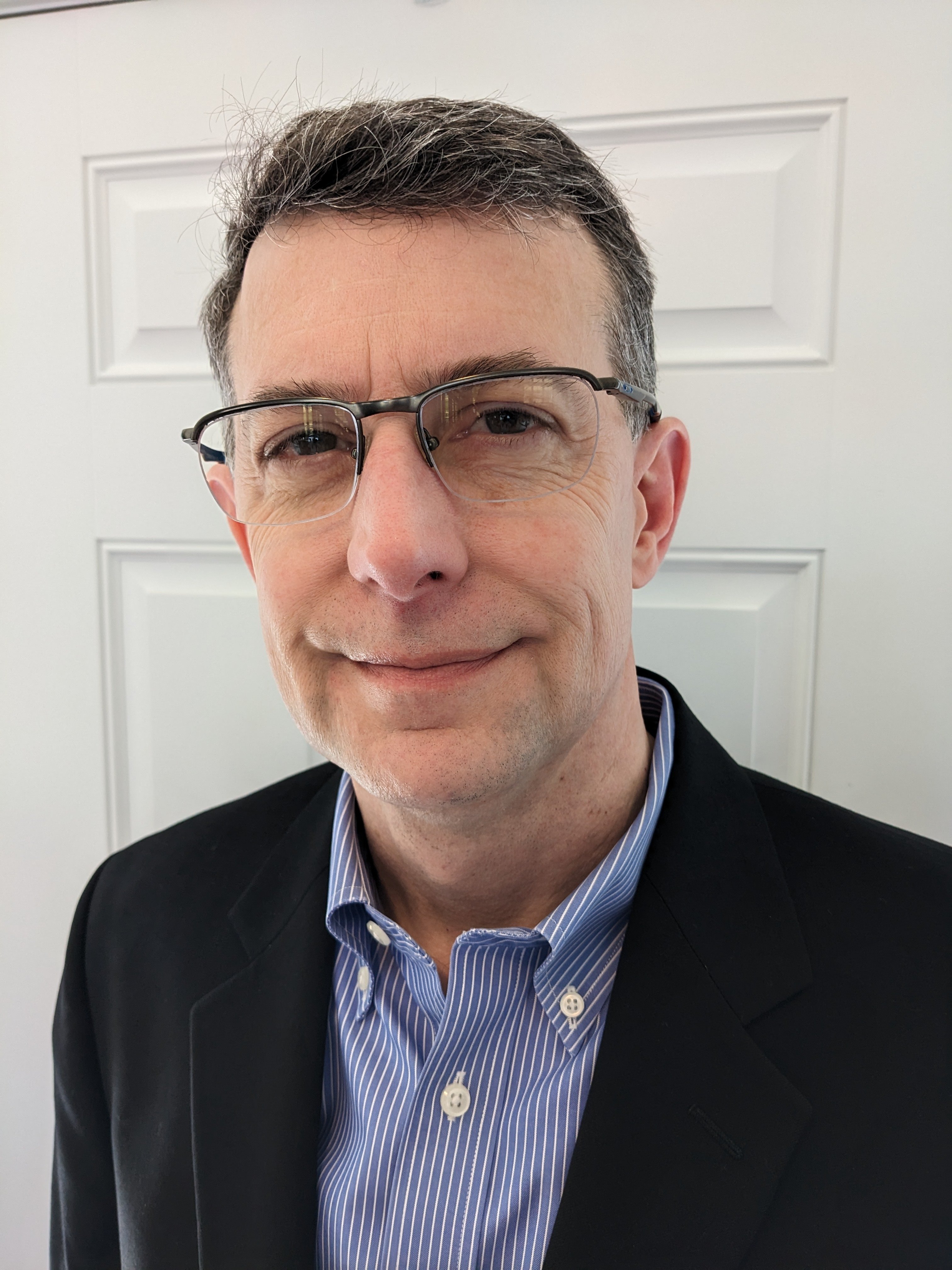
Edward Klein
Adjunct Instructor of Computer Science
-
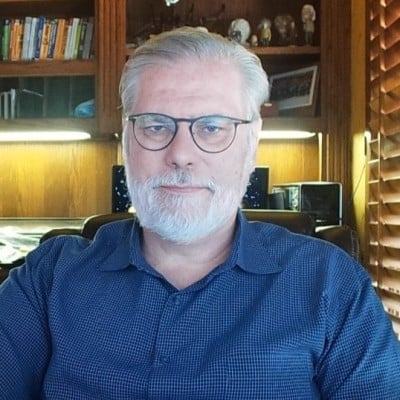
Chuck Easttom
Adjunct Professor of Computer Science
-
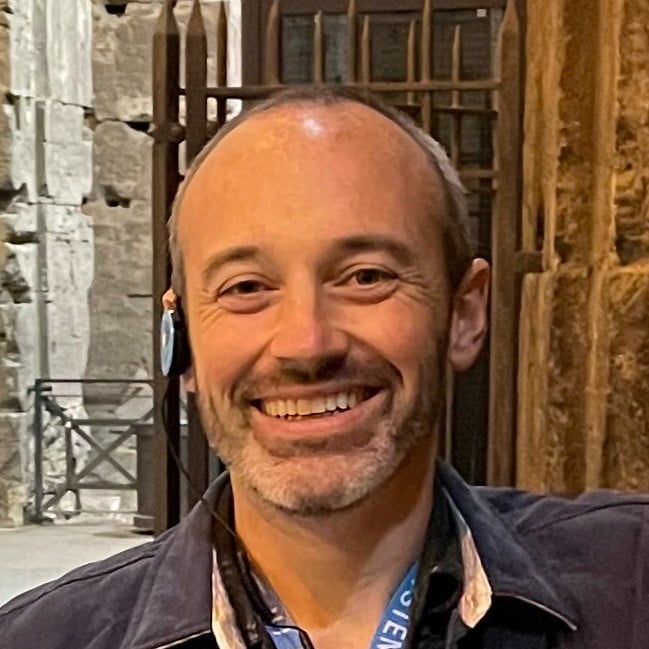
Will Hedgecock
Adjunct Assistant Professor of Computer Science
-
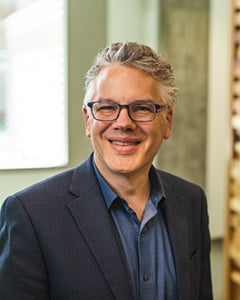
Jesse Spencer-Smith
Interim Director, Data Science Institute
Chief Data Scientist, Data Science Institute
Professor In Practice, Computer Science
-
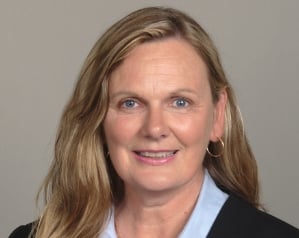
Lori Ferranti
Director of Graduate Studies in Engineering Management, Associate Professor of the Practice of Engineering Management
-

Joanne Rong Wang
Assistant Dean for Professional and External Education Programs, Associate Professor of the Practice of Engineering Management
-
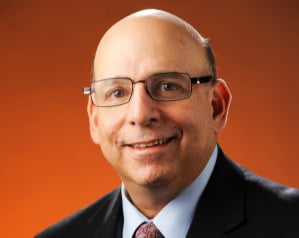
David Berezov
Associate Professor of the Practice of Engineering Management
-
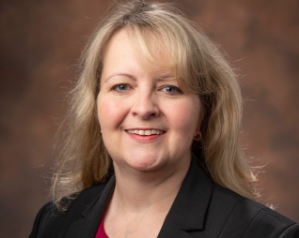
Courtney Johnson
Assistant Professor of the Practice of Technical Communications
-
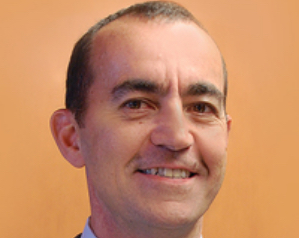
Yiorgos Kostoulas
Director of the Division of Engineering Science and Management, Professor of the Practice of Engineering Management
-
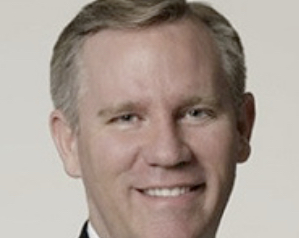
Andrew Van Schaack
Principal Senior Lecturer in Human and Organizational Development, Associate Professor of the Practice of Engineering Management
-
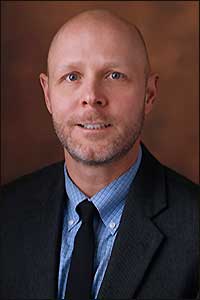
Jason Mitchell
Assistant Professor of the Practice of Mechanical Engineering
-
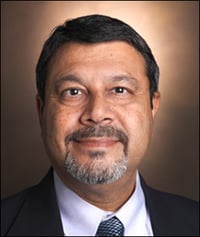
Ashok Choudhury
Senior Commercialization Associate Technology Transfer, Adjunct Professor of Materials Science & Engineering
-
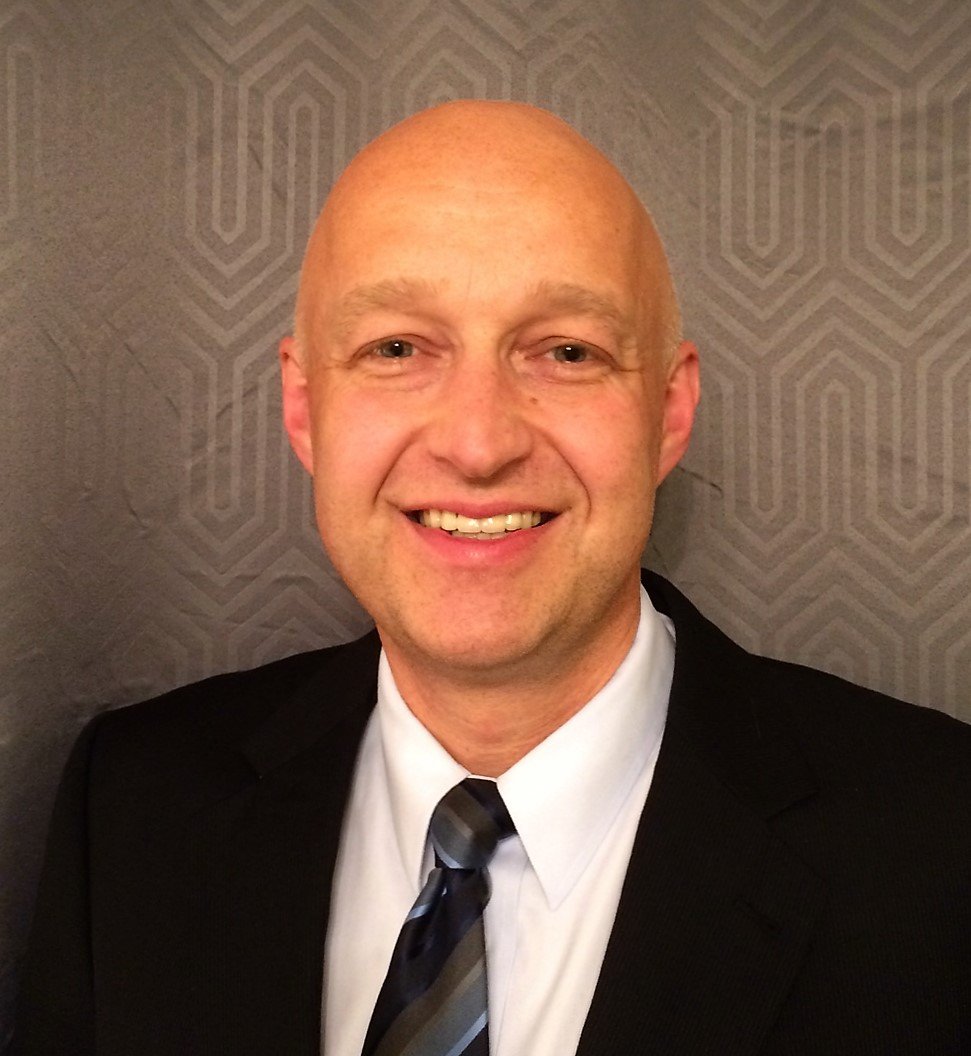
Andreas Garstenauer
Adjunct Instructor in Engineering Management
-
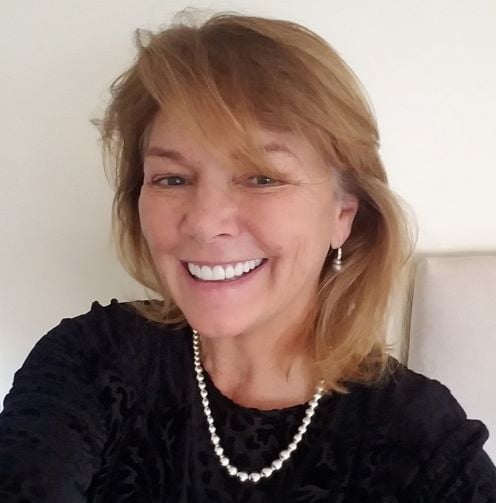
Heather Brennan
Adjunct Instructor in Engineering Management

Dare To Grow:
Vanderbilt Graduates Shaping the Future
Vanderbilt graduates emerge well-prepared from our programs, securing positions at top companies, obtaining the skills needed to advanced swiftly. Many also leverage their skills and knowledge to found their own companies, demonstrating the versatility and impact of a Vanderbilt education.
Companies Hiring Our Vanderbilt Graduates:
|
|
Vanderbilt Engineering Community
The Vanderbilt Engineering Online community is built to inspire you and inspire innovation. As a student, you will have the chance to meet other motivated tech professionals in and outside of classes. Your classmates will come from all areas of the globe and have varied professional and personal backgrounds, providing new perspectives that enable you to grow as a tech and engineering leader.
Below, get to know some of our current students, and hear why they chose Vanderbilt Engineering Online.
-
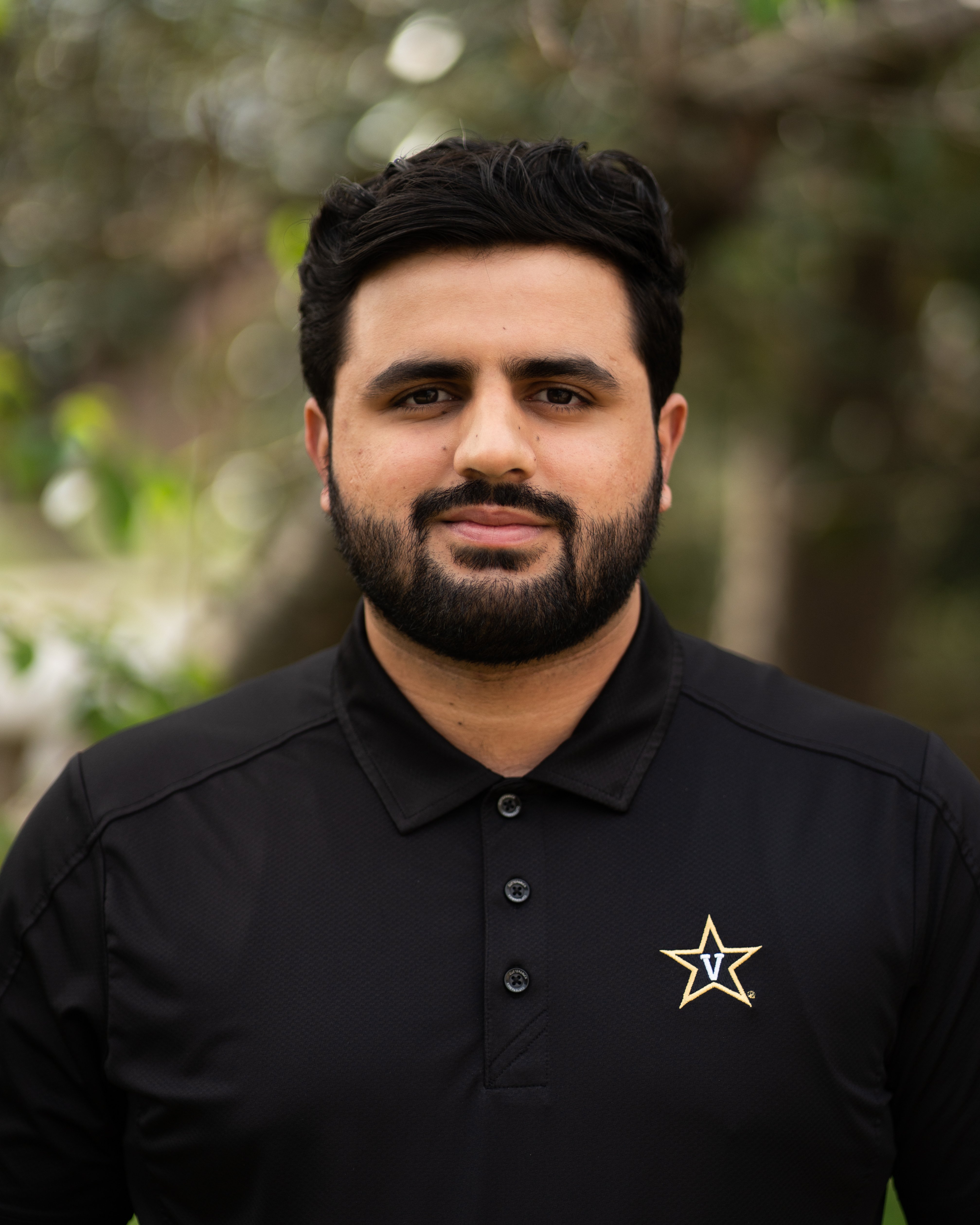
Saad Rajput
M.Eng. in Engineering Management, Student
-
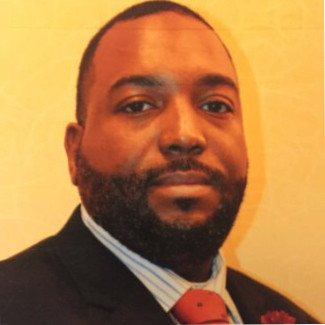
Anton L. Durrah
M.Eng. in Engineering Management, Class of '22
-
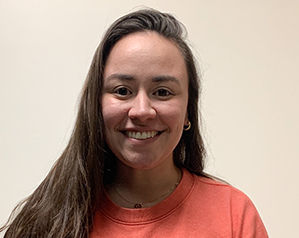
Gabriella Miller
M.Eng. in Engineering Management, Class of '21
-
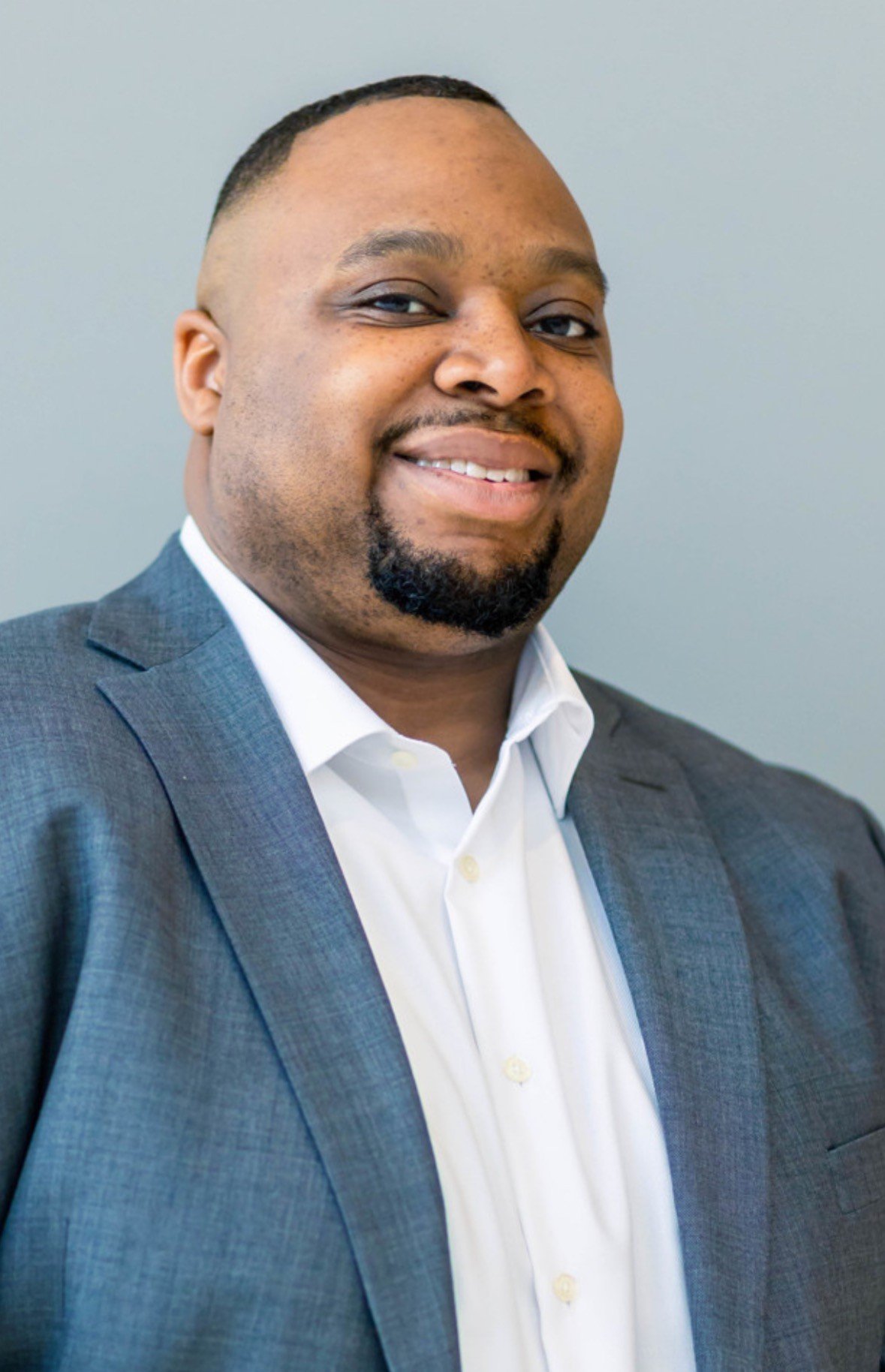
Marsalis Charles
M.Eng. in Engineering Management, Student
-
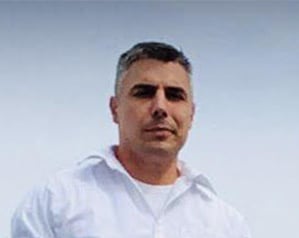
Kaileif Mitchell
M.Eng. in Engineering Management, Class of '21
-
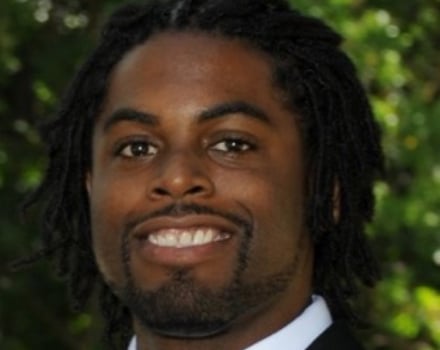
Marcus Randolph
M.Eng. in Engineering Management, Class of '21
-
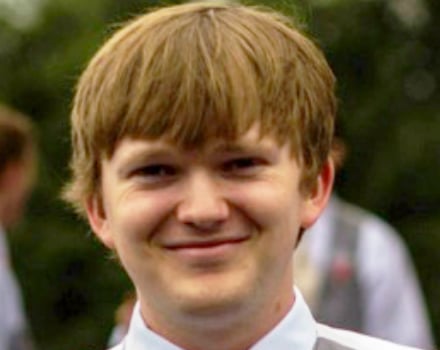
Jordan Ford
M. Eng. in Engineering Management, Class of '21
-
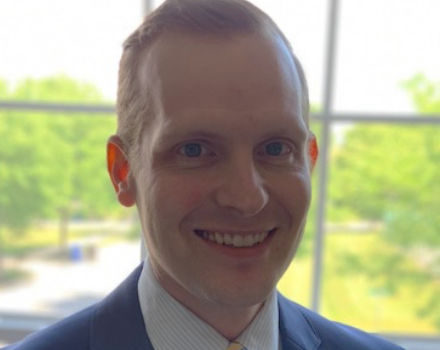
Jonathan Washo
M.Eng, in Engineering Management, Class of '21
Why did you choose to learn online at Vanderbilt?
I looked into the engineering management program, and I told myself that this is exactly what I need to be the industrial leader that I'm looking to become in the future, in my profession.
You mentioned Vanderbilt is your dream school, can you explain why?
As an immigrant kid who came here in 2012, getting into a prestigious school like Vanderbilt was an ultimate goal. I looked into the values of the school, the educational programs, and [thought] this is something that inspires me. That's why Vanderbilt has always been top of my list.
What do you enjoy most about being an online student at Vanderbilt?
The thing I enjoy the most about being an online student at Vanderbilt is the flexibility of being able to work as a full-time in your profession, while managing your degree. The staff, professors and the entire team of the online degree is really helpful, making sure that the professionals who are full-time in the industry do not have to make compromises in order to achieve this degree and their goal.
Can you share your experience with the Vanderbilt community?
The sense of belonging and the support was there from the Vanderbilt community from day one. My very first class and the very first intro program, you feel the welcome from the Vanderbilt professors, staff and faculty. They're always there to make sure you’re following your path, you're meeting your deadlines, but you also have an open relationship with them.
How will an online degree from Vanderbilt help you achieve your goals?
When I started looking into the programs that will somehow cross the bridge between engineering and business the first thing that came into my mind was the engineering management program at Vanderbilt University. It's a program designed to teach engineers to become future leaders, to manage people, to manage projects. So this degree will help me become a project technical leader in the future.
What surprised you most about your experience being an online student at Vanderbilt?
The thing that surprised me most about my online experience at Vanderbilt is how closely connected you are to the staff and the professors. At one point, it does not really feel like an online degree.
What would you say to others considering applying to the online Engineering program at Vanderbilt University?
I would say to others who are in the process or are thinking about applying to the online degree program, do not hesitate, apply. You will not regret your choice. This is one of the best decisions you can make. Vanderbilt is one of the most prestigious degrees. You will most likely find what you're looking for. You get to be yourself and like we say here at Vanderbilt, you get to dare to challenge yourself. These programs will help you get out of your comfort zone and go do the thing that you thought you would never be able to achieve or do in person. So do not hesitate, apply.
Reflecting on your journey since completing Vanderbilt University’s online master’s program, how has the program helped you achieve your goals and advanced your career?
Since completing the program and earning my master of engineering (M.Eng.), in engineering management, I’ve advanced towards one of my goals of moving into an engineering leadership position, where I am responsible for leading discipline engineers. The coursework within the engineering management program provided me with the tools to be an informed and well-rounded engineering leader. I have been able to successfully implement what I learned through course material and apply it for and within my team.
Looking back on your time in the program, what did you enjoy the most and what did you perceive made the program unique?
Looking back at my time in the M.Eng. in engineering management program, I thoroughly enjoyed interacting with my fellow cohort and professors. Attending the weekly course sessions provided memorable opportunities to gain meaningful perspectives and insights on technical subjects, while collaborating on assignments alongside my fellow cohort. A few key aspects that made the program standout were the direct access to our professors, the streamlined online learning platform and full access to Vanderbilt University community resources. As a graduate student, we were afforded virtual (and in person if convenient) access to campus and student activities that expanded our shared experiences and added to the world class course instruction we were receiving.
Are there any specific insights or perspectives gained during your online master's program that have proven particularly valuable?
A few insights I’ve gained from completing the M.Eng. in engineering management degree that have proven to be particularly valuable as an engineer transitioning into management/leadership, were being introduced to the non-technical facets of engineering. As an engineer moving into a management/leadership role, having a toolbox of concepts to include product marketing & development, intellectual property and the comprehension of strategic and financial goals is essential for transitioning into leadership. The M.Eng. coursework included tasks and assignments that allowed each student to practice the tools and concepts received, into meaningful projects and presentations.
Reflecting on your experience in the program, what advice would you give to prospective students considering enrolling in Vanderbilt University’s online master’s in M.Eng. program?
If you are looking to advance your career, increase your knowledge base in your specific business/industry or transition into leadership/management, the M.Eng. in engineering management program at Vanderbilt University will provide you with an amazing educational experience and solid business foundation in, and outside of a technical environment.
Tell us a little bit about yourself and your background.
My name is Gabriella Miller, and I am from Brazil. I moved to the U.S. in November 2014 to learn English after graduating from Tiradentes University with a petroleum engineering degree. In 2017, I was hired as a mechanical engineer at Corrugated Replacements and met my husband.
Why did you decide to pursue your M.Eng. in engineering management?
I decided to pursue this master’s degree in engineering management because I wanted to make sure I was prepared and qualified when the opportunity to become a manager at Corrugated Replacements presented itself.
Why did you decide to pursue your degree online?
As a full-time worker, I had to pursue the degree online. I could not stop my job to go to school; I needed to do both.
Why did you choose Vanderbilt?
Vanderbilt is a well-known institution, and I was honored to be accepted to be part of this school.
What has been the most rewarding aspect of your online education experience?
The most rewarding aspect was that I got to share life with people all over the country. We share experiences, not just online related to school and work, but our individual experiences. I have learned a lot from the friends I made during this program. The professional network that was created through these friendships is also super important.
What has been your favorite course so far?
The capstone course has been my favorite. In it, I have had the opportunity to apply everything I have learned in the program and start a real-world project for the company I work at.
With which professor or faculty member have you most enjoyed working?
All the professors and faculty members are amazing, but I have taken three courses with Professor Courtney Johnson, and I have really enjoyed collaborating with her and learning everything she has taught us these last three semesters.
How are you applying what you have learned in classes to your current work? How will it move you closer to your long-term career goals?
I have started applying skills as I learn them. All experiences shared in this program have already made me look at things differently and taught me what kind of manager I want to be.
Tell us about a project you have worked on or research you have conducted as part of your coursework.
I have created and presented a project to change how the design engineering department is conducted in conjunction with the manufacturing engineering department. My project combines both departments and brings engineers together. It makes sure engineers work together and kills the concept of design engineers making drawings and manufacturing engineers figuring out how to make those parts. As those engineers work together, they will learn how to avoid errors and misunderstandings, saving money and time.
What advice would you give to incoming students or those considering this program?
Come prepared to learn and spend a lot of time as a student.
Why did you choose to learn online at Vanderbilt?
[I chose to learn online at Vanderbilt] for the flexibility of my work, as well as with grad school. I can work around my travel schedule as well. While traveling, I can look at my notes and start working on my reports. Then in downtime at hotels, I'm able to just relax and get my work done as well. Additionally, working with other classmates on projects on their own schedules has been perfect for us, meeting the deadlines and our professor's expectations.
What are you most excited about as an online student at Vanderbilt?
One of my favorite aspects is the interaction with other classmates. Some of us work in aviation, some work in computer science, some work in other fields. We're all combining that as far as solving some of those problems that are those tasks that are asked for in those courses.
What are your plans for your online degree from Vanderbilt?
I'm currently a manager in my career field, but I want to get to the vice president level or work on a board in Cincinnati. What I have learned at Vanderbilt will help instill those details within the company to help the company grow.
Tell us a little bit about yourself and your background.
My name is Kaileif Mitchell. I have worked in the engineering industry for about six years. I have a unique background that covers several different industries: technology, security, retail, medical, customer service, and business. As a sailor in the U.S. Navy Reserve , I have worked in electronics, avionics, and management in a number of different communities and units across the country and around the world. I am married to an amazingly supportive wife, and am a father of four. We spend our free time volunteering at our church and in our community.
Why did you decide to pursue your M.Eng. in engineering management?
I decided to return to school just over a year ago. At the time, I had life and work experience, but what I didn’t have was a four-year degree. I was working as an engineer with an associate degree in avionics and aviation electro-mechanical technologies. My then-fiancée suggested I use my GI Bill to finish my degree, and I graduated cum laude from Liberty University.
I decided to stay in school — the effects of the coronavirus pandemic allowed me to work from home, and I still had time left on my GI Bill, and I applied to several programs. Knowing Vanderbilt’s reputation in engineering, hearing the decision that I had been accepted to the M.Eng. program was surreal.
Why did you decide to pursue your degree online?
An online program fits so well for someone that works full time. By the time I was accepted, the coronavirus pandemic was restricting travel for much of the U.S. The ability to attend Vanderbilt without relocating was a very attractive feature. Being able to present the same caliber of education to your online students as your in-person students is something this institution puts a high value on.
Why did you choose Vanderbilt?
I appreciate the ability to stay at work and pursue higher education simultaneously. Specifically, this program is one of the best online programs I have experienced because there is both asynchronous and “in-person” class time. The live class time allows you to build relationships with members of your cohort and classmates. Relational experiences and networking are other components of this program which closely align with Vanderbilt’s reputation as a paramount institution of higher education.
What has been the most rewarding aspect of your online education experience?
The networking is amazing. Meeting people and sharing this experience makes it feel like I have known some of my classmates for years. The ability to work closely with one another doesn’t end when the Zoom lights go down and everyone logs out. The people in this program genuinely care about everyone else’s success and support each other.
What has been your favorite course so far?
I enjoyed Program and Project Management Strategies and Strategic Technology Management, but my favorite is ENGM6200 Technology Forecasting. It has been really interesting to look analytically at potential technologies that may exist in the future and learn methods to forecast them. It is not something I currently have to do in my industry, but I am extremely grateful to have learned it for future application.
With which professor or faculty member have you most enjoyed working?
I have really enjoyed working with almost all of my professors. In particular, I appreciate that Dr. Kenneth Pence, Julie Birdsong, Andreas Garstenauer and Lori Ferranti each have different teaching methods, but their personalities still come through. These four would be my favorite professors in any other university, because they all present their material in a lighthearted manner that helps students feel at home in class, which maximizes the level of learning and engagement in class.
How has the virtual campus helped you collaborate with faculty and classmates?
I have attended online school at five institutions and in six different programs or areas of study. The platform Vanderbilt utilizes is hands-down the best I have experienced. Collaborative efforts become easy to manage with face-to-face and other interactions through multiple technological platforms.
Tell us about a project you’ve worked on or research you’ve conducted as part of your course work.
My favorite project was in Strategic Technology Management. We suggested topics we thought were interesting, and my team completed a 70-page strategy paper on the benefits of creating a fully autonomous vehicle capable of replacing divers for deep-sea work. In just seven weeks, we created something I thought previously well beyond my capability.
What advice would you give to incoming students or those considering this program?
I would tell them to stay open to different leaning and teaching techniques, be present in class, and learn where to look and who to ask, more so than how to repeat what’s in the book. Understand that in most cases the concepts and ideas are the important part. I would leave them with two quotes that reflect who I am as a leader and as an engineer. The first is from Margaret Mead, who was famously quoted as saying, “Children must be taught how to think, not what to think.” The second is from the author Jules Vern, who proposed that, “Anything one man can imagine, other men can make real.”
Tell us a little bit about yourself and your background.
I was born in a rural suburb in Georgia. We moved to Atlanta, where I received my undergraduate degree in software engineering from Kennesaw State University. I have been married for almost 10 years, and we have a 6-year-old son. Currently, I am a lead engineer for Intel Corporation in California. It has been a journey.
Why did you decide to pursue your M.Eng. in engineering management?
I pursued a degree in engineering management because it suited my career trajectory of becoming a principal engineer and an entrepreneur.
Why did you decide to pursue your degree online?
I have a very demanding career, and I am also a father and husband. I wanted the flexibility to maintain balance in my already busy life.
Why did you choose Vanderbilt University?
Academic prestige and diversity. Vanderbilt is a top-15 university, and that carries much weight in my industry.
What has been the most rewarding aspect of your online education experience?
Networking. I am meeting smart students and brilliant professors.
What has been your favorite course so far?
There are a couple of courses that I have liked so far, but my favorite has been Strategic Technology Management. It was the first class that I took at Vanderbilt, and it was a jolt. It set the tone for the rest of my courses because it was very demanding and required a lot of teamwork. Professor Yiorgos was what I expected of a Vanderbilt professor — calm and smart, with extremely high expectations.
With which professor or faculty member have you most enjoyed working?
I have had a lot of great professors, so picking one is very difficult. I will say that my student success adviser has been fantastic to work with during my time at Vanderbilt.
How are you applying what you’ve learned in classes to your current work? How will it move you closer to your long-term career goals?
The classes have provided a wealth of information. However, I will say that the most beneficial part of my experience has been working with my peers and managing my time for high-quality deliverables. It has carried over to my personal and professional life.
It has given me many methods that I can apply to various aspects of my job. Six Sigma, which is a new term to me, has given me a new way to think about delivering quality products to our customers.
Tell us about a project you’ve worked on or research you’ve conducted as part of your course work.
Right now we are taking our capstone class, and we have to come up with a product and research processes that can make it a reality. I have enjoyed researching and working with my mentor to understand how essential processes are when building a product.
What advice would you give to incoming students or those considering this program?
Incoming students should understand that this is Vanderbilt University, which represents academic excellence. So buckle up and enjoy the ride. The master’s in engineering management program is very demanding but also very rewarding.
Tell us a little bit about yourself and your background.
I graduated from Western Kentucky University with a degree in advanced manufacturing sciences. I have worked for a tier-one Toyota supplier as a quality engineer, a small job-shop manufacturing facility that produces woodworking equipment as a mechanical engineer, and am currently employed by a manufacturer of airbag inflators as a production engineer. I am a proud father of two — a 4-year-old and a 1-year-old. My drive is to show my kids that self-improvement is always possible. If you are capable of reaching higher and wish to do so, it is never a bad idea to keep improving yourself.
Why did you decide to pursue your M.Eng. in engineering management?
I am being prepared for an engineering management position where I am working. The processes that I work on are continuously improving, and with new tools that I am developing through this program, I plan to make a greater impact on the capability of our processes and the engineers who work as my team members. This program is allowing me to develop the tools that I will use on a day-to-day basis and giving me the assurance and ability to know how to handle situations that may come up.
Why did you decide to pursue your degree online?
Due to the high demand of a 40-plus-hour workweek, it is difficult to balance work and school, especially since most in-person classes that are offered take place during the day. In person, I wouldn’t be able to participate in my 8-to-5 work schedule — earning the degree online was an easy choice. However, now that COVID-19 is hindering educational facilities across the nation, it seems that online schooling is now preferable. This way, we can still get the information required; however, we are still able to protect our families and ourselves.
Why did you choose Vanderbilt University?
Honestly, I saw an advertisement on Facebook detailing that Vanderbilt was seeking students for an online engineering management program. At that time, I was seeking admission into Western Kentucky University to attain a master’s degree, but given the reputation of Vanderbilt University, I thought I’d try to seek admittance into their program as well. I thought that the resources they could provide for research and alumni support would impact my life in a substantial way. Not to mention, the way that a Vanderbilt University graduate degree looks on a résumé will help me easily stand out if I am to seek higher employment opportunities.
What has been the most rewarding aspect of your online education experience?
My relationship with my classmates. We are the first cohort of students, and as such, we’re all in this together. Since the first class, we’ve communicated with each other and helped in each other’s shortcomings. We provide advice and mentoring to one another if the situation calls for it. I couldn’t ask for a more productive and close-knit group of peers.
What has been your favorite course so far?
I would say that Technology Forecasting, though foreboding, was my favorite course so far. It delves into topics that I have never covered before and sparks imaginative utopian futures of technologies that you can put a date on. As an example, we can predict based on trends, expert analysis and patent research what technological improvements will be unleashed in the automotive field in the next three to five years. Working as an engineer for a company in that field, knowing this can increase our capability, and planning procedures to better prepare for what that future will look like and how we will handle the business it will bring our way.
With which professor or faculty member have you most enjoyed working?
I would have to say I enjoyed interacting with Professor Andy Van Schaack the most. He is so knowledgeable and excited about the topic (which happens to be technology forecasting), and he is so thorough with his feedback that it feels that you can’t help but improve as you go forward in the course.
How has the virtual campus helped you collaborate with faculty and classmates?
It makes it easy to progress through the weeks of class and helps you understand what topics and assignments apply to that week of studies. Interactions on discussion forums are intuitive and easy to manage. We, as a class, also decided to develop our own GroupMe and discuss on that outside of the virtual campus to be able to interact more with one another.
How are you applying what you’ve learned in classes to your current work? How will it move you closer to your long-term career goals?
I see our discussions and classroom topics play out in real time. Course work, for the most part, can be heavily based on what your career path is. As an example, in Technology Forecasting, we were given the ability to select any technology to write about. I ended up going to my colleagues at work and asking what technologies we are looking into purchasing on which we could use some extra insight. They stated that we were looking into extended reality devices as engineering and process tools. Therefore, I did my reports on extended realities as it pertains to the manufacturing industry. I presented that information to my colleagues, and we will be moving forward with our purchases before the year’s end.
Tell us about a project you’ve worked on or research you’ve conducted as part of your course work.
As an engineer who works with airbag inflators, it is important to understand the systems that will be implemented in the automotive industry in the near future. In a team of three, we delved into autonomous vehicles and wanted to understand the safety systems that would need to be in place for when vehicles became 100 percent automated with 0 percent user assistance. We developed a seat safety device for the changing structure of the vehicle (because when a steering column is no longer necessary, the seating of the vehicle will adjust with the interior of the vehicle). The project was extremely fast paced and difficult; however, it was rewarding, and my group is very close-knit now. We consider each other good friends and talk daily.
What advice would you give to incoming students or those considering this program?
It isn’t easy. How you do will be a direct reflection of how much time you put into it. That isn’t easy with a full-time job. It is, however, one of the most rewarding experiences that I have taken part in. I am building new friendships daily, the professors want you to succeed, and it can only build your stock when management positions open up in your business or you decide to seek bigger and better business opportunities. This program gives you the tools and the merit to achieve success. It is up to you how you develop and use those tools.
Tell us a little bit about yourself and your background.
After graduating from Pennsylvania State University with a Bachelor of Science in finance, I accepted a position with Philadelphia Insurance Companies, where I currently work as a quality and process improvement analyst on their Operational Excellence team. Through various initiatives, programs and projects, our team continuously works to optimize enterprise-wide processes. Our primary objective is to foster an effective, efficient and quality environment from which we can reliably deliver optimal customer experiences.
Why did you decide to pursue your M.Eng. in engineering management?
To drive profitable, innovative and sustainable technological solutions. It has been my experience that the velocity with which companies are able to deploy meaningful solutions is largely dependent upon their ability to execute efficient and effective interdisciplinary collaboration. I believe that those with a firm understanding of systems analysis, process modeling, project management, quality improvement and creative problem solving are those who are most likely to optimize cross-industry construction of complex systems, implement tangible solutions and ultimately emerge as leaders.
Why did you decide to pursue your degree online?
Accessibility. As a husband, new father and working professional, pursuing this degree online affords me the opportunity to learn at one of the nation’s most prestigious universities without inhibiting my ability to realize family goals and professional responsibilities.
Why did you choose Vanderbilt University?
Reputation and emphasis on collaboration. To quote Jim Rohn, “You’re the average of the five people you spend most of your time with.” With the understanding that Vanderbilt’s prestigious reputation is a byproduct of their professors’, faculty’s and students’ world-renowned work, I knew that “spending time” with Vanderbilt’s community would yield tremendous personal and professional benefit.
What has been the most rewarding aspect of your online education experience?
My classmates. Vanderbilt’s emphasis on collaboration and diversity has fostered an environment in which students themselves are the value-add. Collectively working to solve problems with fellow students has yielded immeasurable benefit.
With which professor or faculty member have you most enjoyed working?
D) All of the above. Throughout this program, I have had the opportunity to learn from some seriously impressive individuals — true leaders within their respective industries. While unquestionably distinct, all have taught from a perspective only achievable through authentic, real-world experience.
What has been your favorite course so far?
Operations and Supply Chain Strategy. While the subject matter is predominantly quantitative, the architecture of the course ensures that it is always properly contextualized. Not only are the tools, techniques and methods very actionable, but the strategic implications of their application are continuously made very clear.
How has the virtual campus helped you collaborate with faculty and classmates?
In a traditional, in-person learning environment, students generally face one direction — at the professor. Conversely, in a virtual campus “classroom,” everybody faces each other — like a roundtable. In several ways, I find the virtual campus to be a more engaging, immersive and collaborative environment. From live-session breakout rooms to seamless content-sharing capabilities, Vanderbilt’s virtual campus offers a robust set of intuitive, purpose-driven and highly functional tools, which make collaboration a breeze.
Tell us about a project you’ve worked on or research you’ve conducted as part of your course work.
In Professor Van Schaak’s course, Technology Forecasting, I constructed a series of technology forecasts pertaining exclusively to the continued advancement of enterprise-grade artificial intelligence. Predicated upon the convergence of three well-established forecasting methodologies, a set of plausible scenarios were leveraged to illustrate not only the future technical capabilities of enterprise-grade artificial intelligence but also their societal and economic impact.
What advice would you give to incoming students or those considering this program?
New students, welcome to the program and congratulations on your accomplishment. As you embark on this journey, two things will become abundantly clear: (a) it is not going to be easy, and (b) you are surrounded by people eager to help. Dedicate time to developing strong relationships with classmates, professors and advisers. Ultimately, the strength and effectiveness of your support system is dependent upon how much effort you, personally, dedicate to its development.
To those considering this program, go for it. Pursuit of Vanderbilt’s engineering management degree will quickly prove itself to be a sound investment. An emphasis on how, not what, to think ensures that what you take from this program is not only immediately and broadly applicable but sustainable — forever relevant.
-
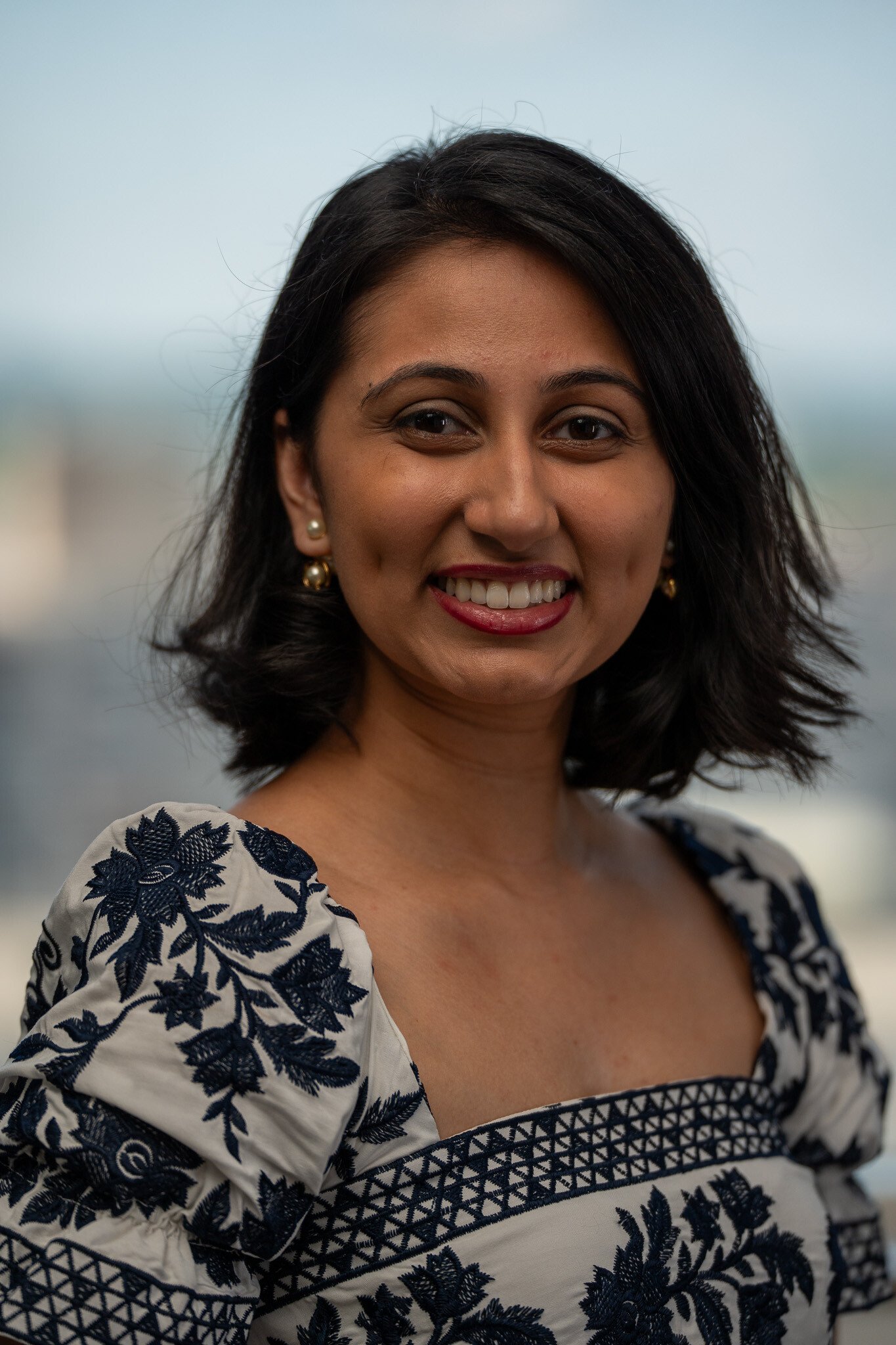
Victoria Balkissoon
M.S. in Computer Science, Class of '23
-
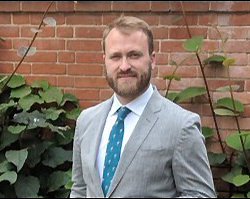
Troy Kensinger
M.S. in Computer Science, Class of '22
-
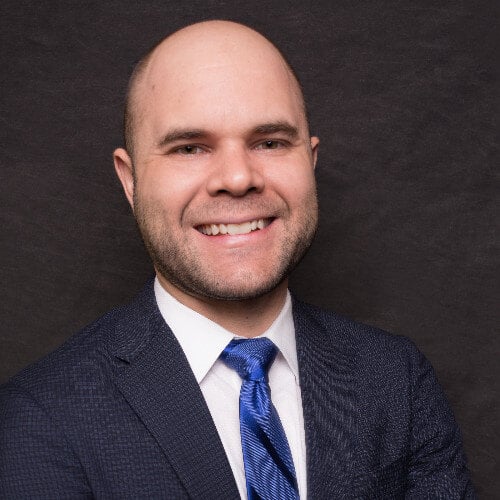
Craig Topham
M.S. in Computer Science, Class of '21
-
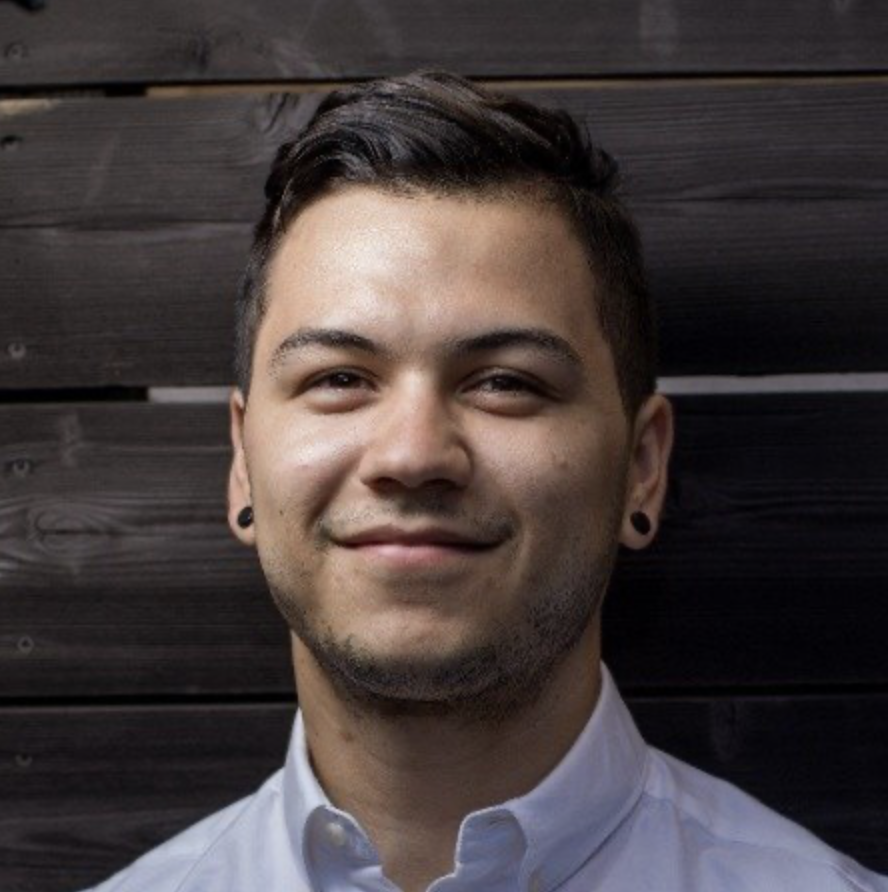
Brian Lee
M.S. in Computer Science, Student
-
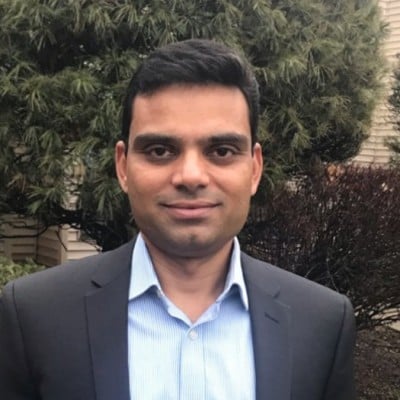
Makarand Bhor
M.S. in Computer Science, Student
Reflecting on your journey since completing Vanderbilt University’s online master’s program, how has the program helped you achieve your goals and advanced your career?
Much of the knowledge I have gained during the online master’s program at Vanderbilt has direct connections to my current job with the U.S. Navy. In turn, it has helped me extend and enhance my toolset to be an even more effective software developer for my team which has greatly assisted with my transition to a senior software developer. Moreover, the program provides unique opportunities to think outside the box like an entrepreneur and push your own boundaries which has inspired me to take the plunge and co-found the software company, NightShift Codes.
Looking back on your time in the program, what did you enjoy the most and what did you perceive made the program unique?
Convening was one of the experiences I enjoyed the most during my time in the program as it was a weekend to not only meet your classmates and professors in person, which really enhanced the family-like nature of the remote program, but it also afforded students with insightful and inspiring presentations like ones on IP law and Entrepreneurship, subjects not particularly talked about in the classroom. In addition to convening, overall the program course offerings were unique when compared to other CS programs at other universities as they have direct connection to real-life work experiences and what is currently popular in the field of computer science. For instance, with the instant popularity of ChatGPT during my microservices course when I was in the program, professor Douglas Schmidt ensured that us students would understand the impact of AI and the importance of prompt engineering in our field right at the onset of their popularity, showcasing how Vanderbilt’s courses in this program evolve at the same cadence with tech, making it standout from other programs.
Are there any specific insights or perspectives gained during your online master's program that have proven particularly valuable?
Referencing to my response to the prior question, I would say the one insight that was really evident and something students were thrusted into during the program at Vanderbilt was evolving hand-in-hand with technology as it evolves. I knew the importance of continuously learning in tech, but the program gave me a whole new perspective on it and taught me how to do so without burning myself out. I saw direct impacts of being most up-to-date with new developments in my field of interest in a quick and effective manner that has really heightened my impact as a developer in new ways.
Reflecting on your experience in the program, what advice would you give to prospective students considering enrolling in Vanderbilt University’s online M.S in computer science program?
One major deciding factor in my enrollment into the online M.S. in computer science program at Vanderbilt was the accelerated pathway for the program, which I would highly recommend prospective students to consider. The professors at Vanderbilt carefully plan out the courses and assignments that make taking a heavy course load doable even while working full-time like I did. Another piece of advice I would give is to use the flexible course offerings to your advantage to both enhance your areas of interest and discover new ones (I was afforded a unique opportunity to co-author a textbook with classmates of my digital forensics course with Dr. Chuck Easttom because I took the course and honestly fell in love with the sub-field of digital forensics!).
Troy is a Technical Program Manager responsible for Google’s election results experience. He is from College Station, Texas, and currently resides in Los Angeles.
What was your professional path to Google?
The path started right after my undergrad from Texas A&M (S-E-C!). I was a part of an IT residency program and I worked as a Corporate Operations Engineer (basically a role doing IT helpdesk and system administration) at Google’s Mountain View headquarters. Taking this role diverged from my original career path, which was semiconductor testing. My undergrad was in Electronics Engineering and interned as a test engineer with IBM’s Systems & Technology group in Austin. Despite not really having a lot of IT experience, I took a gamble and accepted the position when it was offered. Once I got to Google, I was able to learn so much—including that IT wasn’t the field for me. Luckily, internal mobility within Google is supported. This led me to working with a variety of different teams, such as Android Security, Google Fiber, and Datacenter Hardware Platforms
It’s been close to 10 years since this all started and it’s been an absolute blast. I’ve learned so much and I wouldn’t trade this experience for anything.
What do you do at Google? Tell us about the election results project.
For the last 2 years, I’ve been working as a Technical Program Manager for the Search Social Initiatives team, specifically working on Civics-related projects. To give you an example of what this means, I help build and launch features on Search that assist users with their Civic journey (e.g. look up who represents them in their respective government, learn how and where to vote, see the results of current elections, etc). My direct role in Civics and in the U.S. 2020 Elections experience is/was to ensure that our data infrastructure continues to be resilient and to manage high-risk work streams (e.g. ensure proper executive-level product escalation paths are in place for launch day, drive the development of system monitoring tools, establish defensive protocols in situations of product abuse, etc).
Most recently, I contributed to a project that helped people find credible information on election results. When people come to Google looking for “election results,” they’d see the official count of projected electoral college votes and vote percentages for various levels of government from the Associated Press (President, federal legislative, gubernatorial, ballot measures). Of course, I didn’t do this alone; while it may seem like a fairly straightforward feature, it involved a team of people working to ensure our users had easy, efficient access to updated, authoritative information on Google Search
I also work on products such as the Civic Info API, which is a free political data resource that anyone can use. I also helped build other Civics-related features, including the experiences people see when they search “where to vote” or “how to vote.” Our goal was to provide more than just blue links. We wanted to help people with their voting journey, making it easier to find their polling locations and provide guidance for how they could vote or register to vote. Of course, all of this information came from authoritative data providers/sources.
What was the biggest technical challenge facing the team? Any surprises?
There’s an aphorism that comes to mind when thinking about the challenges we faced: “perfect is the enemy of good.” In this space, it is critical that the information we provide users is clear, accurate, comprehensive, and authoritative. As you’d expect, this isn’t easy to achieve. In the situation of the Election Results Onebox, we had other scope that we wanted to launch, but eventually had to cut due to data limitations. However, the show had to go on and we were able to launch a great election night experience despite not being able to do everything that we thought would be useful to users.
How will this experience shape Google’s coverage/tracking/reporting? of midterm elections in 2022 and a presidential election in 2024, other future elections?
We’re always looking for ways to improve people’s experience when they come to Google looking for civic information. In the past, we’ve had election results features for the US Mid-terms, EU Parliament, Lok Sabha, Bundestag, and many others. It’s likely we’ll continue to expand where it makes sense and where possible. We’ve also got some other proactive, non-election period ideas that are regularly discussed, but are not ready for the launch backlog just yet.
Why pursue a computer science master’s degree and why the Vanderbilt School of Engineering online program?
A professor once told me “never stop learning…always push yourself to mentally ingest something new every day.” While I have ample opportunity to learn on the job at Google, I often find myself craving the structured learning environment of academia. I’ve always wanted to pursue a masters and Vanderbilt has provided exactly what I have been pursuing. What makes this program unique is that it covers both the theoretical and practical aspects of developing software, which is exactly what I need to help scale the work that I do within Google. The faculty at Vanderbilt recognize this and support me in any way they can. The ultimate goal is to propel myself to the c-level and I believe I can get there through consistent learning and dedication to my craft/the products that I work on.
Finally, as a computer scientist, what’s your opinion about the future of information gathering?
Advancements in Artificial Intelligence and Natural Language Processing have certainly made it easier to obtain and serve data relevant to user’s interests. From the Civics perspective, combining these technologies with data from sources like the Federal Election Commission and the Library of Congress have made serving Civic related information easier to utilize. The more readily available this data is to our users, the more informed and involved people are likely to be in their civic lives.
Tell us a little bit about yourself and your background.
I currently work as a product manager at Bank of America for an AI platform that supports internal associates who service and onboard corporate and commercial clients globally. I come from an unconventional background for being in technology. I graduated with a bachelor’s in justice studies and began my journey into technology incrementally as I worked my way up from an entry-level contact-center position. It started with Excel formulas, to macros and on to some front-end web work and Python. I believe anybody can learn how to be a productive developer if they work at it, no matter their background.
Why did you decide to pursue your master’s in computer science?
Technology is enmeshed in so many parts of our lives — it makes me feel like I am living in a transformative time in the world, and I want to be part of it. I believe the skill set that you gain while going through this program’s curriculum gives you the ability to harness a healthy amount of technology and use it in any creative way you could imagine.
Why did you decide to pursue your degree online?
I needed something that would work with my schedule. Online classes are great at providing enough structure to hold you accountable and enough flexibility to forge ahead in your career.
Why did you choose Vanderbilt University?
Vanderbilt has an awesome curriculum. The key subject areas, such as mobile computing, cloud computing, distributed systems and software engineering, touched on everything I wanted to learn. The professors are so well equipped to teach every class — no stone goes unturned.
What has been the most rewarding aspect of your online education experience?
I love finishing a challenging project. The most rewarding aspect of my experience so far has been picking up a language or a tool I have never used and, after each semester, feeling enough confidence that I could apply it to my own personal or professional work.
What has been your favorite course so far?
Concurrent Object-Oriented Programming. I was nervous about taking this class before the semester started — it seemed daunting. It turned out to be the most fascinating class I have ever taken. We covered all types of tricks in synchronization. Professor Schmidt taught the class and made all the projects really fun. The lessons were sequenced in a way that built on each other, and of course, you end the semester with a cool little mobile app.
With which professor or faculty member have you most enjoyed working?
It’s hard to pick just one; all of them are great. Professor White always has great discussions in class, and his asynchronous material is really informative with lots of actual coding. Professor Hemingway has some great assignments for students. Professor Schmidt has a wealth of knowledge, is always available to students and is able to teach you Java and Kotlin backwards and forwards.
How has the virtual campus helped you collaborate with faculty and classmates?
The virtual campus has made everything from joining live classes to taking quizzes a breeze. I like the “wall” feature, which lets you post questions for a class.
How are you applying what you’ve learned in classes to your current work? How will it move you closer to your long-term career goals?
I use what I’ve learned to understand every decision that’s made for the application I manage at work — from our architectural decisions, such as our middleware and API orchestration, to importing client usage data from Splunk and pulling it into Python, to figuring out what features to implement next.
Tell us about a project you’ve worked on or research you’ve conducted as part of your course work.
I had an opportunity to work on a project to catalog IoT devices in your home and search for any type of security vulnerabilities using the Shodan API.
What advice would you give to incoming students or those considering this program?
Do not give up on yourself. There will be some challenging projects, but you can get through them if you keep at it! Everyone has different strengths. You may find one class difficult, and the next may be well within your wheelhouse.
Why did you choose to learn online at Vanderbilt?
I wanted to come out of [this experience] with a high-quality learning experience and get a lot of information related to my field and help take me to the next level. Once I saw Vanderbilt had the option to give me the same degree, but online, it was kind of a no-brainer for me.
What do you enjoy most about being an online student at Vanderbilt?
I think what I enjoy most about it is the flexibility. It's a really big deal to be able to do my job and shift over and just completely change gears and kind of immerse myself in this academic side that I haven't been able to be involved in for quite some time.
What are you most looking forward to after your online experience at Vanderbilt?
I'm here to learn from people who have done things in an academic sense, learn the theory behind more complicated modern systems and bring that to everyone in my area, in my vicinity and just level us up.
Reflecting on your experience in the program, what advice would you give to prospective students considering enrolling in Vanderbilt University’s online master’s in M.S. program?
I get a lot out of working in that remote setting. I think a lot of us are really comfortable in that remote setting because of the way our jobs are nowadays. This [program] kind of just embraces all of that and allows me to still be able to take my career to the next level without having to completely disrupt my life. I really have been finding a lot of value in the decision I've made to come to Vanderbilt online.
Why did you choose to learn online at Vanderbilt?
I thought a master's in computer science is the best way to [achieve my goal], and I looked at programs from a lot of schools, and Vanderbilt offered a lot. They have flexibility in their course itself, their course is evolving every semester, and that's the reason why I chose Vanderbilt. I compared courses across schools, and this one seems to be more evolving, and the faculty members have pretty impressive credentials.
What has been your experience with Vanderbilt’s faculty?
The professors have a very strong pedigree. They come from the professional world and academic, a combination, so they know what's happening: the latest and greatest in applied technology, where you apply technology to the real world. That makes the whole course interesting. They're looking at the course in a very different way, their adding value, not just the course material, but they're sharing their experience, they're sharing their thought process and they're changing things. They have interesting assignments & interesting projects.
